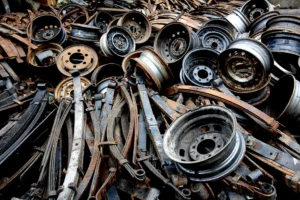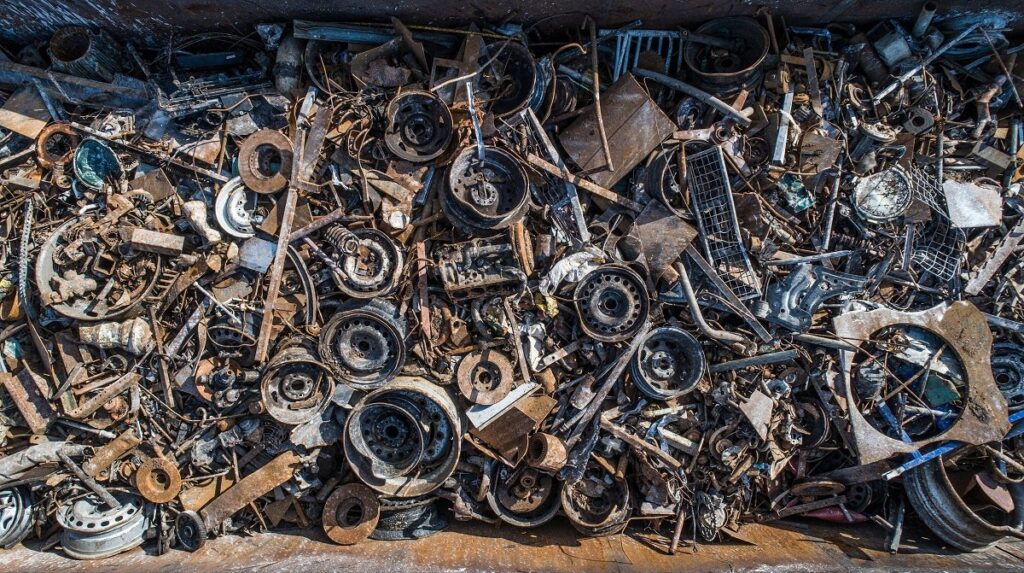Recycling is a critical component in the philosophy of sustainability that has risen in the last decade. Sustainability is the avoidance of depleting the earth’s natural resources in the interest of lessening humankind’s impact on ecology. Recycling allows previously mined and utilized resources to re-enter the supply chain to be reused again. That reduces the need to mine new resources and reduces the impact of such operations on the environment.
There are many ways to become involved in recycling, whether you simply opt for curbside recycling of household waste or take old metal components to a salvage scrap yard to be processed and reused in the future. Recycling isn’t just for plastic bottles and cardboard, as other items can be recycled through electronics recycling programs or your local salvage company in Claire, MI. Keep reading to learn a few facts about recycling.
Recycling Is a Necessity
 Simply put, recycling isn’t just an option or luxury. To maintain the current rate of production demanded by modern civilization, recycling is necessary. First, natural resources are finite rather than unlimited. Therefore, it’s important that the resources that are available are used and reused as many times as possible, since the demand for natural resources will overtake the supply. Reusing natural resources helps keep resources from being wasted, especially when those resources can be used over and over without degrading their quality.
Simply put, recycling isn’t just an option or luxury. To maintain the current rate of production demanded by modern civilization, recycling is necessary. First, natural resources are finite rather than unlimited. Therefore, it’s important that the resources that are available are used and reused as many times as possible, since the demand for natural resources will overtake the supply. Reusing natural resources helps keep resources from being wasted, especially when those resources can be used over and over without degrading their quality.
Recycling Is Underutilized
Despite all the benefits associated with recycling, it’s currently an underutilized practice in the US. The EPA estimates that while roughly 75% of the waste stream in America is recyclable, only about 30% of waste is currently being recycled.
Recycling Retains Quality
A tremendous amount of energy is used mining and processing natural resources into the materials and products that are offered in the global marketplace. That energy often comes from fossil fuels, as fossil fuels like natural gas, diesel fuel, and gasoline power the equipment used to mine the resources and the factories in which those resources are refined. For example, recycling an aluminum can take a fraction of the energy used to originally mine the aluminum and manufacture the can. Recycling, therefore, can help reduce emissions and lower the carbon footprint of manufacturing, thus providing an eco-friendly way for suppliers and manufacturers to meet the demand for critical natural resources.
Recycling Is an Economic Engine
 Recycling operations can also have a dramatic impact on employment and create economic opportunities for the communities. Currently, recycling centers, scrap yards, and recycling collection services employ thousands of people across the US, and as recycling becomes more widespread, those numbers will increase. The impact of recycling goes beyond saving resources and protecting the planet, it can also serve as an economic engine in communities that may not have other industries present.
Recycling operations can also have a dramatic impact on employment and create economic opportunities for the communities. Currently, recycling centers, scrap yards, and recycling collection services employ thousands of people across the US, and as recycling becomes more widespread, those numbers will increase. The impact of recycling goes beyond saving resources and protecting the planet, it can also serve as an economic engine in communities that may not have other industries present.
Recycling is key to developing a more sustainable civilization that will meet the demands of a growing population. To learn more facts about recycling, contact Fair Salvage Company at (989) 386-7552.

